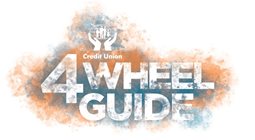Used Car Finance Ireland
Car
3
min read
19 Jan 2022

4WheelGuide: Your roadmap to buying a new or used car
Hello. You may have stumbled across this blog looking for information on how to finance a used car. You've come to the right place.
At the credit union, we’re experts in flexible car finance, but we also care about our customers. We want them to access the fairest and most transparent financial supports available - that’s why we’ve compiled jargon-free advice explaining the pros and cons of different forms of car finance.
When someone uses the phrase ‘Used Car Finance’ they might typically be referring to a type of financial deal called PCP – also known as a higher purchase agreement – which is an agreement that involves leasing the car to a buyer (we’ll explain more about that below, and tell you what to watch out for).
If you’re thinking of buying a car this year and want to know more about what low-cost loan rates your local credit union has to offer, contact your local credit union here.
1. PCP or Higher Purchase
Perhaps you read one of our blogs on personal contract plans like how a PCP differs from a car loan.
If not, a PCP is a kind of hire-purchase agreement, where you ‘lease’ the car from a lender. You don’t actually own the car until you make the final payment. First you pay 20%-30% of the value of the car as a deposit, then make monthly repayments over three years. Then you pay a (very) large lump sum at the end, in order to own the car. Some things to look out for with a PCP are:
-
PCPs payments are usually very fixed in the terms of the contract term, so you can’t pay it off early.
-
As you don't own the car while you're making the monthly payments, you must adhere to restrictions, such as not going above a certain mileage limit, and you need to service the car at designated areas. If you damage it, it could cost you a lot more.
-
If you want to extend or shorten the loan term, that will most likely be subject to fees.
-
At the end, you will be asked if you want to pay a lump sum to own the car. This is called the Guaranteed Minimum Future Value, and is a large final balloon payment, which can be anything up to 50% of the value of the car.
For more unbiased information on PCP contracts, head to the Competition and Consumer Protection Commission’s website.
2. Car Loans
As you may know car loans are offered by most financial institutions. A car loan differs from a PCP in that it’s much more flexible. You purchase the car and own it outright from the money you borrow and you choose when you want to pay off the loan.
Car zone reported that credit unions were the most popular place for Irish car loans in 2020. Although car loan APR rates vary credit union to credit union, the lowest APR charged is average amount charged was 5% APR in the Republic of Ireland available from both Enfield Credit Union and St. Paul’s Garda Credit Union, while in Northern Ireland Lurgan Credit Union's rate was 6.5% APR^. You can access the credit union car loan calculator here, to see the average cost of a car loan based on your requirements.
Some more information about financial terms with car or personal loans:
-
The Annual Percentage Rate (APR) is a calculation of the overall cost of your loan. This includes the cost of the loan, as well as any fees for setting it up.
-
APR is calculated each year based on the decreasing amount you owe for the loan – not the original amount you borrowed.
-
APR rates can differ depending on where you go for the loan: when you compare rates, make sure they are based on the same total amount you want to borrow, and for the same term. (amount of time you wish to
-
Using Loan calculators will allow you to see how much the loan will cost you over a certain amount of time. This is the cost of credit – the difference between what you borrowed and the final cost.
Different financial institutions have different APR rates. You can contact with your local credit union to see what they offer.
3. Money Lenders
It is reported that up to 350,000 people in the Republic of Ireland use the services of moneylenders, with an estimated €153 million owed. Money Lenders are not banks, credit unions or building societies. Exact criteria are listed by the Central bank, but money lenders usually charge over 23% interest on loans, and must have a licence to issue loans.
Although many people use Money Lenders for small amounts, it’s important to include them here to warn again
-
Some money lenders operate without a licence – this means they are illegal. Check if a Money Lender is licened on Central Bank’s
-
There should be a 10 day cooling off period for both parties. If you waive your right to this, you must sign a separate agreement.
-
APR rates are usually 23% or higher
We would advise to avoid this expensive finance. Read our blog for more information on Money Lenders and how to avoid them.
4. Credit Cards
According to our own research, more than half the population (58%) own a credit card, almost two thirds don’t know what interest rate they are paying. If you’re thinking of purchasing anything with your credit card, here are some points that might come in handy to know.
- Interest rates on credit cards can vary between 13%-26%: oftentimes well above the APR of personal loans.
- You will receive a statement every month, with how much you spent, the balance you owe, and the minimum repayment. This is usually just 2-5% of the total amount spent.
- It is better to clear the total balance in full every month, or as much as you can: not just your minimum repayment. If you just pay the minimum repyament, you could pay a lot more interest.
Read our blog for more information on how a credit card works.
5. Savings
Savings is the most a popular way to finance your car, according to the 2020 Carzone study. This is probably the most sensible way to finance your car, if you have the money to do so. Some credit union will offer what they refer to as a ‘loan in shares’ or a ‘secured loan’ which is a reduced APR based on the amount of savings a lender might have with the credit union.
If you've found the car of your dreams and need a little help, your local credit union is always on hand to chat, so submit an enquiry whenever you wish. Alternatively, to see what the average car loan rate will cost you – check out our handy loan calculator.
Submit an Online Loan Enquiry

Keep an eye out for #4WheelGuide across Facebook, Twitter, or Instagram for more great advice on budgeting, choosing and buying your car as well as design and style ideas and inspiring stories – so you can gear up for the car of your dreams.